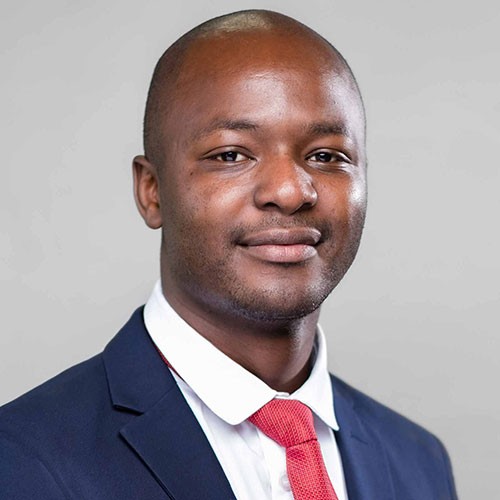
Kenya’s cluster of fintech firms has gained a global reputation. Silicon Savannah, as it is dubbed, has already produced an array of internationally successful businesses. The most celebrated, M-Pesa, Africa’s first mobile payments service, now serves more than 50 million individual customers and nearly 500,000 businesses across seven countries. Tala, a digital credit company, has also moved beyond Kenya’s borders to make loans as far afield as the Philippines, Mexico and India. And a new generation of entrepreneurs are using mobile technology to expand access to micro-insurance, helping provide highly tailored protection on anything from travel to healthcare.
‘There is a real community of fintech innovators in Kenya, with success breeding success,’ says Satyajit Turumella, IT advisory director of East Africa for Grant Thornton in Kenya. ‘This has attracted financing.’
‘All the ingredients are there for further growth’
In the first half of 2024, fintechs in Kenya raised US$97m, almost a third of the total for the continent and second only to Nigeria (see graphic), according to business insight website Afridigest. Kenya’s fintech market is now valued at approximately US$7bn, with IT research provider SoftwareVerdict expecting compound annual growth of almost 17% between 2023 and 2027.
‘The industry in Kenya has considerable momentum,’ says Ramatallahi Balogun ACCA, a senior accounting analyst at Paystack, an Africa-based digital payments company that has recently been expanding into Kenya. ‘You are looking at a place with a high internet penetration, a robust tech infrastructure, supportive regulators and plenty of interest from venture capitalists. All the ingredients are there for further growth.’
Skillset expansion
Not surprisingly, the emergence of a wide range of innovative financial firms has generated strong demand for accountants to support their growth and scale-up. However, the oceans of data generated by fintechs have made it important for financial professionals to expand their skillset.
Balogun says: ‘This not like working at a normal manufacturing firm. These businesses tend to be very fast-paced and have a lot of transactions. So in addition to the standard accounting training, financial professionals need to develop solid data analytics skills to effectively grasp what is going on, as well as to support companies in the development of new products or services.’
An understanding of how to use tools such as the SQL programming language, which allows users to query databases and extract and analyse data to produce financial reports and business insights, is a valuable skill. To dig out salient details concealed within mountains of information, financial professionals may also need to make use of Tableau, PowerBI or Metabase to help their businesses organise, analyse and visualise data, Balogun adds.
While Kenya’s regulators have been encouraging of the fintech industry, they are also eager to limit the potential for harming consumers, especially low-income ones. ‘Things can go wrong very fast if the finance teams at fintechs are not on top of reconciliation,’ says Balogun. ‘Financial authorities are insisting on seeing the books, sometimes even monthly, to make sure firms are properly capitalised. Any slip could really damage trust, not only in the specific company but in the sector more broadly. This adds to the urgency of having skilled and data-savvy accounting and financial professionals involved.’
‘Smaller start-ups tend not to have the budget for the calibre of financial staff they need’
Advisory advances
Such pressures have fuelled a surge in demand for outside consultants, says Turumella. ‘Smaller start-ups tend not to have the budget for the calibre of financial staff they really need, especially a top-notch chief financial officer,’ he says. ‘This is where firms offering advisory services come in.’
Services that may be required include setting up a business, filing returns, establishing payroll and ensuring regulatory compliance as well as technological due diligence. Consultants can also help develop the financial models needed to evaluate how much funding an infant company will need to achieve its goals – which is essential in convincing venture capitalists or angel investors that the business can be a winner.
The combination of accounting and tech skills required to provide such services is not easy to find in sufficient quantities. Turumella says: ‘There is a lot of skill and talent in Kenya, so much so that the country is even exporting services. That said, we ourselves have been looking for a data analytics manager for quite some time; it’s a highly competitive market.’
‘You not only find a real entrepreneurial spirit, but also a great eagerness to learn’
One approach to plugging such gaps has been for consultancies to bulk up their in-house training resources through an encyclopaedia of internal material, courses, personalised training and on-the-job experience. ‘With the right kind of person, you can really develop their skills within the firm,’ Turumella says. ‘In Kenya you not only find a real entrepreneurial spirit, but also a great eagerness to learn.’
While financing for fintech deals in Africa was down in the first half of 2024, this partly reflected challenging international conditions, including high interest rates. The start of rate reductions from the US Federal Reserve in September should help support global liquidity and risk taking. Kenya’s burgeoning fintech sector looks likely to be among the beneficiaries – which can only be good for the nation’s accounting and finance professionals.
More information
ACCA’s annual virtual conference Accounting for the Future includes multiple sessions on digital technology topics, including 'Unlocking the data and AI skills dividend'. Register to watch live on 26-28 November or on demand. Up to 21 units of CPD are available.



